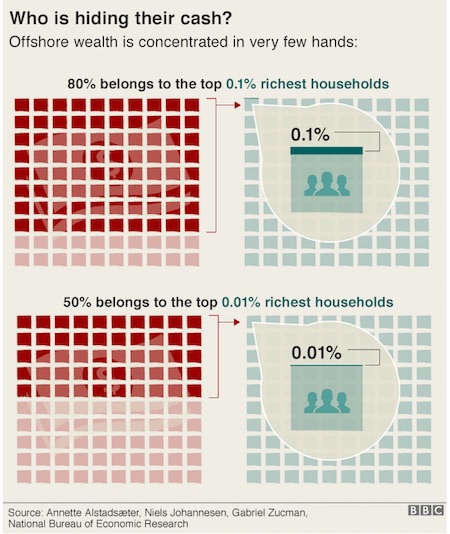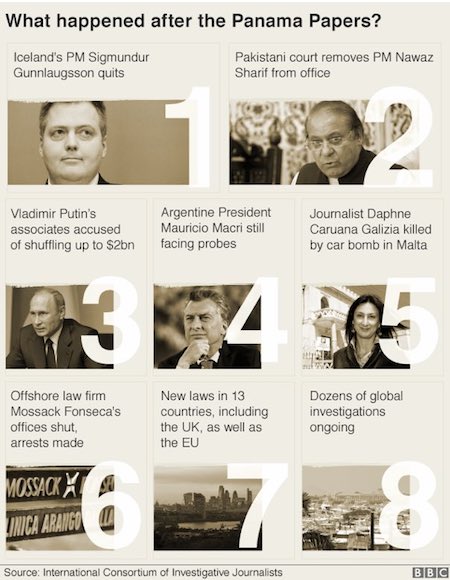
Ezra Stoller Parking garage, New Haven, Connecticut 1963

Stranger things have happened.
• Theresa May: Trump Told Me To Sue The EU (BBC)
Donald Trump told Theresa May she should sue the EU rather than negotiate, she has told the BBC. The US president said on Friday at a joint press conference that he had given her a suggestion but she had found it too “brutal”. Asked by the BBC’s Andrew Marr what it was he had said, she replied: “He told me I should sue the EU – not go into negotiations.” She defended her blueprint for Brexit and urged her critics to back it. She said it would allow the UK to strike trade deals with other nations, end free movement of people and the jurisdiction of the European Court of Justice.
A White Paper published on Thursday fleshed out details of the agreement reached by the cabinet on how post-Brexit trade will work. Before the paper was published, Brexit Secretary David Davis and Foreign Secretary Boris Johnson resigned, saying it would not deliver the Brexit people had voted for in the 2016 EU referendum. Talking about the president’s advice on how to handle the EU, Mrs May said: “Interestingly what the president also said at that press conference was ‘don’t walk away’. “Don’t walk away from those negotiations because then you’ll be stuck. So I want us to be able to sit down to negotiate the best deal for Britain.”

Not really.
• Trump Reveals The Queen’s Private Views On Brexit (G.)
Trump enthused about his reception at Windsor Castle on Friday, where he and Melania spent 45 minutes with the Queen. “It was a very easy talk,” he said. “You know, it’s hard to talk to somebody if you’re, sort of, if there’s not that something special. You know that better than anybody. Sometimes you’ll have a guest on where no matter what you do it’s not working, right? And then sometimes it’s magic. We had a great, a great feeling.” Morgan asked: “Did you get the feeling she liked you?” “Well I don’t want to speak for her,” Trump said, “but I can tell you I liked her. So usually that helps. But I liked her a lot.”
Asked if he had discussed Brexit, Trump said: “I did. She said it’s a very – and she’s right – it’s a very complex problem. I think nobody had any idea how complex that was going to be … Everyone thought it was going to be, ‘Oh it’s simple, we join or don’t join, or let’s see what happens’.” Trump would not say if the 92-year-old monarch told him what she really thinks of Britain’s attempt to leave the European Union. “Well,” he said, “I can’t talk, you know I’ve heard very strongly from a lot of people, you just don’t talk about that conversation with the Queen, right? You don’t wanna do that … Let me tell you what I can talk about … she is an incredible woman, she is so sharp, she is so beautiful, when I say beautiful – inside and out. That is a beautiful woman.”

That’s not a warning, it’s a wish.
• Theresa May Warns There Could Be ‘No Brexit At All’ (R.)
Prime Minister Theresa May has warned there may be “no Brexit at all” because of lawmakers’ attempts to undermine her plan to leave the European Union. “My message to the country this weekend is simple: we need to keep our eyes on the prize,” May wrote in the Mail on Sunday newspaper. “If we don’t, we risk ending up with no Brexit at all.” Earlier this week two senior ministers resigned in protest at May’s plans for trade with the EU after Britain leaves the bloc next March. Her blueprint was then criticised in a newspaper interview by U.S. President Donald Trump, a position he backtracked on during a meeting with May on Friday.
May also wrote in the Mail on Sunday article that Britain would take a tough stance in its next round of negotiations with the EU. “Some people have asked whether our Brexit deal is just a starting point from which we will regress,” she said. “Let me be clear. Our Brexit deal is not some long wish-list from which negotiators get to pick and choose. It is a complete plan with a set of outcomes that are non-negotiable.”

Damned if you do, doomed if you don’t.
• The Chequers Brexit Compromise Offers The Worst Of Both Worlds (Mandelson)
When I first looked at what had been agreed on Brexit at Chequers, I thought the plan would please nobody, but that the public might conclude that these proposals represent the best available. In reality, it’s a spatchcocked, half-in, half-out plan and the business response was frustration: it is better trade news for goods but a disappointing hard Brexit for services. Those who voted to “take back control” were more vitriolic: it is an attempt to remain close to Europe, full of concessions and compromises, and therefore a million miles from what they expected. In Brussels on the day of the white paper’s publication, I met officials on the British and EU sides, as well as the Irish, and found a desire to debate its content seriously.
For the last two years Theresa May has elevated sovereignty over trade and she seemed to be making a timely correction, as well as reaffirming her Irish border commitment. But as I returned home, my earlier doubts resurfaced. This plan neither allows us to receive the economic benefits of being fully inside the EU’s trade perimeter nor will it give us the freedom to market ourselves independently to the rest of the world. It is a halfway house that will leave us hanging by a thread, subject to the EU’s rules – whatever they are in future – with no say in their formulation. As a former EU trade commissioner, I know how complicated trade negotiations are and why they always end up with fewer gains on both sides than either expects.
So I am sympathetic to the government’s desire for something more ambitious and more customised to Britain’s needs. And I understand why the CBI has welcomed this ambition, particularly because it has chosen to prioritise international manufacturing businesses and their supply chains over services. However, it is services rather than manufacturing that make up the bulk of the UK economy and to relegate them makes no sense.

They’re as slow as the British themselves.
• Prepare For No-Deal Brexit, German Business Groups Tell Members (R.)
German business groups have urged their members to step up preparations for a hard Brexit that would see Britain crash out of the European Union next year without negotiating a deal. British Prime Minister Theresa May secured a cabinet agreement last week for “a business-friendly” proposal to leave the EU, aimed at spurring stalled Brexit talks. But the hard-won compromise has come under fire from within her governing Conservative Party and may yet fall flat with EU negotiators. “Even if the British government is moving now, companies must plan for the scenario in which there is no agreement,” Joachim Lang, managing director of the BDI, Germany’s biggest industry lobby, told the Welt am Sonntag newspaper.
Thilo Brodtmann, managing director of the VDMA engineering association, told the same paper: “It is urgent to prepare for Brexit and to expect the worst case scenario.” German industry is concerned about increased friction in trade with Britain after Brexit. Britain is the second-biggest export market for German car manufacturers. But Lang said some German businesses were only just starting to analyze what Brexit would mean for them, adding: “At least that has moved us forward from a few months ago.”

I like Dana Sabraw.
• Immigrant Children, Parents Reunited Faster Under New Court Order (R.)
When Yolany Padilla was released from immigration custody in Seattle last week, she assumed she would be quickly reunited with her 6-year-old son, who had been taken from her at the U.S.-Mexico border two months earlier. But caseworkers at Cayuga Centers in New York, where the boy had been placed, told her lawyer that the government’s vetting process for reunification would take time. Fingerprint collection and analysis alone could take 60 days, and there would also be background checks of all the adults with whom she and her son would stay. It would likely be weeks before her son could be returned to her. “I didn’t want to believe that could be true,” said Padilla, who comes from Honduras and is seeking asylum in the United States.
“It hurt so much to even think it could be 60 days.” That estimate changed abruptly on Thursday night after a federal judge’s order that the government streamline some vetting procedures for reunifying parents and children. Padilla’s lawyer, Leta Sanchez, received a call from Cayuga Centers’ general counsel saying the case had been referred for expedited processing. On Saturday, Padilla and her son, Jelsin, were reunited at the Seattle airport, where he was flown from New York. Padilla ran to her son as he entered the airport waiting area, dropping to her knees and embracing the small boy as he smiled broadly. “It’s been so long since I’ve seen him, imagine how I feel inside,” Padilla said, speaking through a translator at the airport after the reunion.
“It was like my heart was going to come out of my body,” Several immigration attorneys reached by Reuters said they had seen similar expedited reunions following a July 10 order by U.S. District Judge Dana Sabraw in a case brought against the government by the American Civil Liberties Union. The judge had previously ordered the government to reunify by July 26 as many as 2,500 immigrant children it had separated from their parents at the U.S.-Mexico border in recent months. The separations were part of President Donald Trump’s efforts to crack down on illegal immigration, though some of the separated families are also asylum seekers. That policy was abandoned in June in the wake of widespread protests.
On July 10, after examining how an initial wave of reunifications of young children had gone, Sabraw concluded that government vetting policies could be streamlined to speed the process. Reunifications should not be delayed by “lengthy background checks,” the judge wrote, noting that such checks would not have been performed if the parents and children had never been separated.

Spain is going to be the no. 1 destination.
• Spain Saves Over 340 Migrants At Sea, One On Truck Tyre (AFP)
Spanish rescuers saved more than 340 migrants in the Mediterranean on Saturday (July 14), including one person from north Africa who was attempting the crossing on board a truck tyre, they said. Salvamento Maritimo, Spain’s coastguards, said their ships had rescued 240 people spread out in 12 boats, 10 of them in the Strait of Gibraltar and two others in the Alboran Sea, and on the truck tyre. A spokesman added that the Guardia Civil police force had also saved more than 100 migrants in the Mediterranean. Spain is set to overtake Italy as the country of choice for migrants trying to reach Europe.
Some 16,902 people have arrived in Spain so far this year, the International Organization for Migration’s most recent figures show, and a further 294 died in the attempt. All in all, more than 1,400 migrants have lost their lives in the Mediterranean this year, they add. Last month, Spain also agreed to take in 630 migrants who arrived aboard three vessels, including the French NGO rescue ship Aquarius.

The EU is conspicuously silent on this.
• 450 Migrants Stranded At Sea As Italy, Malta Dig Heels In (AFP)
Another 450 migrants on board two military vessels were stranded at sea on Saturday as Italy and Malta locked horns over whose responsibility it was to offer them safe harbour. The boats, which are currently in Italian waters, had initially set sail from Libya in a single wooden vessel which was identified early Friday while passing through waters under Malta’s jurisdiction. But Italy’s far-right Interior Minister Matteo Salvini, who has authority over the country’s ports, on Friday refused to let them dock in his latest show of intransigence over migrants stranded at sea. And on Saturday, as those on board were transferred to two other vessels, he insisted the boats be instructed to “head south, to Libya or Malta”.
“We need an act of justice, of respect and of courage to fight against these human traffickers and generate a European intervention,” he said in talks with Prime Minister Giuseppe Conte, his remarks carried by Italian news agencies. In an exchange of messages, emails and phonecalls on Friday, Rome had tried to push Valetta to take responsibility for those on board the wooden boat. But Malta said the ship was much closer to the Italian island of Lampedusa, insisting that those on board only wanted to reach Italy. On Saturday morning, they were transferred to two military vessels but where the vessels will dock remains unclear. Eight women and children were taken to Lampedusa for medical treatment. The new standoff kicked in just hours after 67 migrants were allowed to disembark from an Italian coast guard ship in Sicily late on Thursday.

A thousand ways to track you.
• Mobile Phones Are ‘The Best Spying Device You Can Imagine’ (CNBC)
Could someone be tracking you as you drive around your city or town? You may think turning off your smartphone’s location will prevent this, but researchers from Northeastern University in Boston found that isn’t always the case. “Not a lot of people are aware of this problem. Mainly because when we think about location, we associate it with the GPS on the phone,” said Sashank Narain a postdoctoral researcher at Northeastern. In a test, Narain and his team were able to track people driving through Boston, Waltham, Massachusetts, and London. Traditional locators, like GPS were turned off — so the researchers used other sensors. “The goal of our project is to make people aware that vulnerabilities such as these exist, and they should be taken care of,” Narain added.
Guevara Noubir, a professor at Northeastern University who was involved in the research and also directs Northeastern’s Cybersecurity & Information Assurance Graduate Program, told CNBC that “there’s a whole area, what’s called the side channel attacks, where you use side information to infer something that can have an impact on security,” and specifically, privacy. Using Android phones running Google’s operating system, the researchers did the tracking using sensors in smartphones that were not designed to track location. Those tools included an accelerometer, which tracks how fast a phone is moving, a magnetometer, which works like a digital compass, and a gyroscope, which tracks rotation. These sensors are responsible for things like changing the screen orientation from horizontal to vertical when the phone is moved.

“No matter their embedded biases, technologies are declared neutral.”
• The Wealthy Are Plotting To Leave Us Behind (Rushkoff)
[..] the more devastating impacts of pedal-to-the-metal digital capitalism fall on the environment and global poor. The manufacture of some of our computers and smartphones still uses networks of slave labor. These practices are so deeply entrenched that a company called Fairphone, founded from the ground up to make and market ethical phones, learned it was impossible. (The company’s founder now sadly refers to their products as “fairer” phones.) Meanwhile, the mining of rare earth metals and disposal of our highly digital technologies destroys human habitats, replacing them with toxic waste dumps, which are then picked over by peasant children and their families, who sell usable materials back to the manufacturers.
This “out of sight, out of mind” externalization of poverty and poison doesn’t go away just because we’ve covered our eyes with VR goggles and immersed ourselves in an alternate reality. If anything, the longer we ignore the social, economic, and environmental repercussions, the more of a problem they become. This, in turn, motivates even more withdrawal, more isolationism and apocalyptic fantasy — and more desperately concocted technologies and business plans. The cycle feeds itself. The more committed we are to this view of the world, the more we come to see human beings as the problem and technology as the solution.
The very essence of what it means to be human is treated less as a feature than bug. No matter their embedded biases, technologies are declared neutral. Any bad behaviors they induce in us are just a reflection of our own corrupted core. It’s as if some innate human savagery is to blame for our troubles. Just as the inefficiency of a local taxi market can be “solved” with an app that bankrupts human drivers, the vexing inconsistencies of the human psyche can be corrected with a digital or genetic upgrade.















